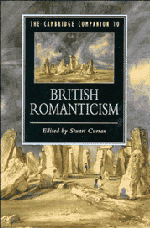Book contents
- Frontmatter
- 1 Romanticism, criticism and theory
- 2 Romanticism and Enlightenment
- 3 Poetry in an age of revolution
- 4 German Romantic Idealism
- 5 Romanticism and language
- 6 Culture's medium
- 7 Romantic Hellenism
- 8 Women readers, women writers
- 9 Romantic fiction
- 10 Romantic poetry
- 11 The sister arts in British Romanticism
- Chronology
- Bibliography
- Index
2 - Romanticism and Enlightenment
Published online by Cambridge University Press: 28 May 2006
- Frontmatter
- 1 Romanticism, criticism and theory
- 2 Romanticism and Enlightenment
- 3 Poetry in an age of revolution
- 4 German Romantic Idealism
- 5 Romanticism and language
- 6 Culture's medium
- 7 Romantic Hellenism
- 8 Women readers, women writers
- 9 Romantic fiction
- 10 Romantic poetry
- 11 The sister arts in British Romanticism
- Chronology
- Bibliography
- Index
Summary
The new age proclaims itself to be fleet of foot, with wings on its soles; the dawn has put on seven-league boots - Long has lightning flashed on the horizon of poetry; the heavens have collected their stormy might into a powerful cloud; now the thunder has resounded mightily, now it has retreated and flashed only in the distance, now it has returned yet more fearsomely: but soon we shall speak not of a single storm, but the entire sky will break out into flame, and then all your petty lightning rods will avail no longer. Then the nineteenth century begins in earnest. . . Then there will be readers who can read.
Schlegel, “Über die Unverständlichkeit”Romanticisms and Enlightenments
The readers of this volume will find Lovejoy's famous essay “On the Discrimination of Romanticisms” amply confirmed: Romanticism cannot be defined. To include an essay called “Romanticism and Enlightenment” seems to be an impossibility compounded. On any reasonably comprehensive view the eighteenth century was not dramatically more uniform than the early nineteenth. Indeed, in one crucial respect it was less so, for no fact so inescapably galvanized the Enlightenment mind as that of revolution did the mind of Romanticism. There are many versions of Enlightenment - aristocratic and bourgeois, rationalist and empiricist, modernist and classicist, mercantilist and laissez-faire, urban and pastoral, religious and secular. Properly speaking, this chapter should be entitled “Romanticisms and Enlightenments,” a multiplicity that leaves the student no hook except the little word “and” to hang a hat on.
- Type
- Chapter
- Information
- The Cambridge Companion to British Romanticism , pp. 25 - 47Publisher: Cambridge University PressPrint publication year: 1993
- 9
- Cited by

